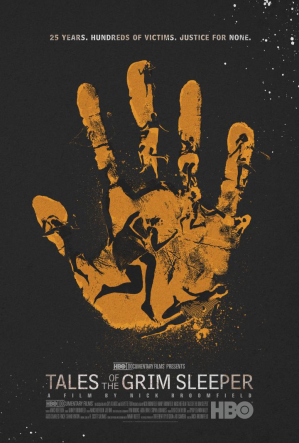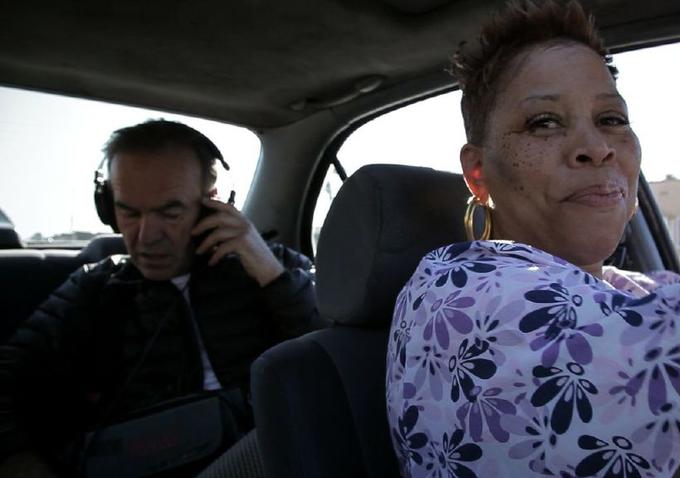Ebert, Snowden and Wim Wenders on High-Profile Documentary Shortlist
 Tuesday, December 2, 2014 at 1:26PM
Tuesday, December 2, 2014 at 1:26PM The Academy has announced the 15-wide documentary shortlist and apart from one title, it's is a very high-profile group of names. At least they are if you follow the world of documentary. I had discussed with a friend recently that last year's field may go down as the greatest in the category's history, but depending on how the branch votes this year they may just surpass it. I have already seen nine of the 15 and can vouch for almost all of them. Let's take a look.

- Art and Craft
- The Case Against 8 (review)
- Citizen Koch
- Citizenfour (podcast | Glenn's review)
- Finding Vivian Maier
- The Internet's Own Boy
- Jodorowsky's Dune
- Keep On Keepin' On
- The Kill Team
- Last Days in Vietnam (review)
- Life Itself
- The Overnighters
- The Salt of the Earth
- Tales of the Grim Sleeper (NYFF review | AFI review)
- Virunga
There are some big names in here. Apart from the likes of Edward Snowden Roger Ebert, Alejandro Jodorowsky and Clark Terry who are the subjects of the shortlist's most recognisable titles, there's also Wim Wenders (co-directed with Juliano Ribeiro Salgado) who is contending for his third documentary Oscar citation (after Beuna Vista Social Club and Pina) and first win with The Salt of the Earth, while Nick Broomfield is angling for his first ever nomination with Tales of the Grim Sleeper despite a big career. It appears the new documentary rules are finally working in his favor! Carl Deal and Tia Lesson are back with Citizen Koch after Trouble the Water was a nominee in 2008. While, most famously, Steve James, the director of Life Itself, is no stranger to Oscar controversies (but we'll talk about that in a couple of days!)
 Since we all enjoy a spot of prognasticating, I'd be looking most heavily at Citizenfour, Keep on Keepin' On, Last Days in Vietnam (they love docs about Vietnam!) Life Itself, The Overnighters, although it would be sweet to see Broomfield finally nominated for an Oscar, especially since his pair of Aileen Wournos docs so heavily influenced another Oscar-winner: Monster. Finding Vivian Maier, the blockbuster of the field (until Citizenfour overtakes it this week) shouldn't be discounted either. I'd assume Virunga a threat for a nomination but between Project Nim and Blackfish, animal documentaries appear to be out of favor at the moment.
Since we all enjoy a spot of prognasticating, I'd be looking most heavily at Citizenfour, Keep on Keepin' On, Last Days in Vietnam (they love docs about Vietnam!) Life Itself, The Overnighters, although it would be sweet to see Broomfield finally nominated for an Oscar, especially since his pair of Aileen Wournos docs so heavily influenced another Oscar-winner: Monster. Finding Vivian Maier, the blockbuster of the field (until Citizenfour overtakes it this week) shouldn't be discounted either. I'd assume Virunga a threat for a nomination but between Project Nim and Blackfish, animal documentaries appear to be out of favor at the moment.
Left out of the field? Well, considering there were 134 semi-finalists, that's a long list! However, some of the more high-profile titles that didn't make the shortlist cut include The Dog, 20,000 Days on Earth, Rich Hill, Happy Valley, Particle Fever, National Gallery, Elaine Stritch: Shoot Me, Antarctica: A Year on Ice, Manakamana, Nas: Time is Illmatic, Finding Fela and Whitey: United States of America vs James J Bulger. Just quietly, I know it was popular and was assumed a shortlist placing, but I'm kind of glad Red Army isn't on here. I wouldn't be surprised if a few of those - The Dog, Manakamana and the Nick Cave-centric 20,000 Days on Earth especially - popped up on critic organisation lists though. As far as Oscar goes, however, they're sadly done.
Do you follow the documentary category now that bigger films and bigger names are finding themselves on the list? What are you doc hunches?




